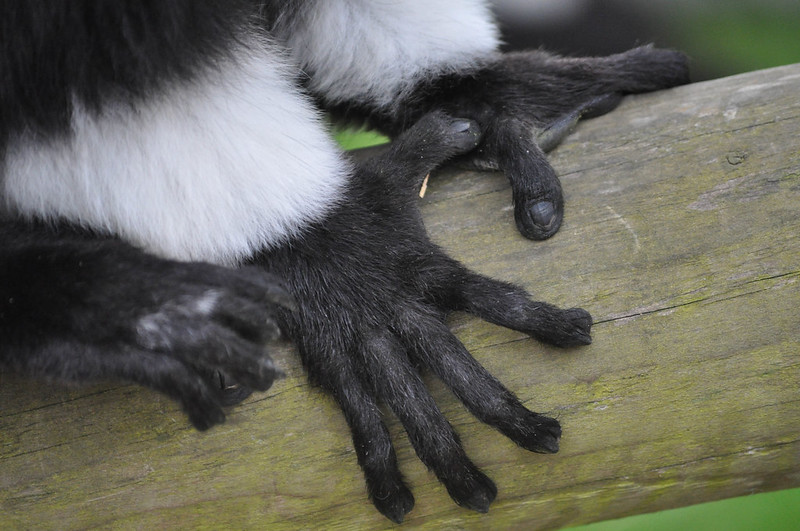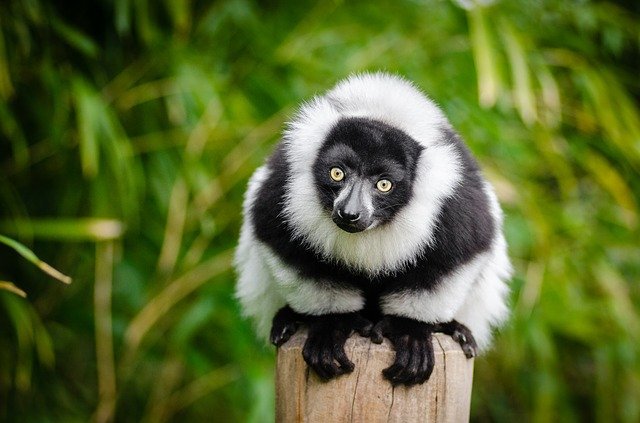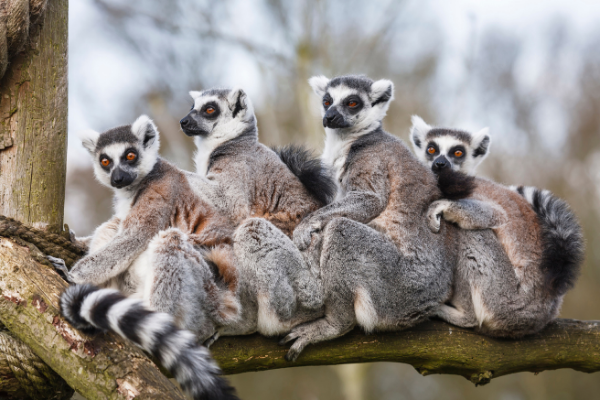MADAGASCAR
Land of Lemurs
By Charlotte McGlone
Chapel Hill, NC, United States
Madagascar is the fourth largest island in the world. Within its 226,658 square miles (587,041 square kilometers) lie a variety of interesting geographical regions. Its shoreline gives way to coastal plains, while its center holds high mountains and plateaus. Its temperature varies little throughout the year, averaging a low of 50°F in July and a high of 82°F in January.
Biodiversity
The many ecosystems of the island make it one of the most biodiverse countries in the world. Here can be found approximately five percent of all plant and animal species known to humanity, with 80 percent of them native to Madagascar. Of particular fascination to scientists are the native lemurs. The nearly 100 species of lemur live in the wild only in Madagascar, and if it were not for this remote island, they probably would not exist.
All About Lemurs
Thank goodness they do exist! Lemurs are fun and interesting creatures. They belong to a subtype of the order of mammals called primates, which includes apes, monkeys, and even humans!
Lemurs have many important features. They have hands and feet with digits that can grasp tree branches. They exist in many shapes and sizes ranging from 1.1 ounces to 20 pounds.

Lemurs are extremely social, and, like many other primates, live in groups that communicate through sound, touch, and visual cues. Because most species are nocturnal, sleeping all day and staying awake at night, it means that they have large eyes that help them see in the dark. They also have highly developed senses of smell and hearing.
Lemur Evolution
Lemurs have lived in Madagascar for a long time. Before the island separated from the rest of Africa, primates like lemurs wandered there, and they continued to evolve as Madagascar slowly drifted away from the continent.
The first fossils of lemur ancestors are about 60 million years old. Monkeys, apes, and modern humans go back only 17 to 23 million years, by which time Madagascar was already comfortably residing in the Indian Ocean. Because small colonies in Madagascar remained sheltered from the rest of the world, lemurs were able to evolve into the robust community we know today.
Conservation
Now that you know how exciting lemurs are, it is vital to reflect on how we can ensure their security. When we humans expand into wilderness areas around us, we cause problems for native creatures that inhabit these places and also seek to coexist. In 2023, the World Wildlife Fund estimated that 96 percent of lemur species in Madagascar were threatened with extinction.
We can achieve a balance between the needs of humans and animals as long as we recognize the importance of every element in the ecosystem. It would be a shame to let these amazing creatures disappear from the face of the earth, so we should do everything in our power to live in harmony with our lemur brothers and sisters on the majestic island of Madagascar.
Have a suggestion for this story? We’d love for you to submit it!


Blank
Blank
Slideshows
Are you a teacher who’s interested in telling this story to your students? Here are two slideshows you can use to get started.
Math Resources
- How much older is the oldest lemur fossil compared to the oldest human fossil?
- Research the rate at which forest habitat in Madagascar is disappearing. Design a graph that predicts when the forest will vanish completely.
- If you were to start a lemur breeding program and started with two lemur pairs, how long would it take for you to compensate for the reduction of lemur numbers in Madagascar?
Extension Question
One of the reasons lemurs are endangered is habitat destruction. How do you respond to the argument that humans need to claim lemur land for their own livelihood?
Explore Further
- Facts about lemurs
- Blog about the status of lemur conservation
- Website of the Lemur Conservation Network
- Website of the Duke Lemur Center
- Video of sifaka lemurs
- Facts about Madagascar
- IUCN Red List of endangered species
Share Your Story
Write your own Global Math Story and send it to us!
Sorry, the comment form is closed at this time.